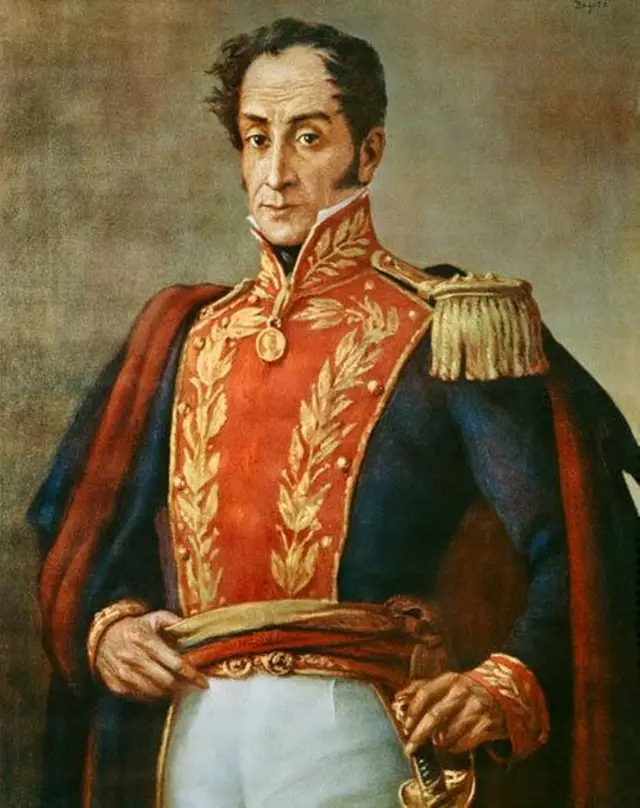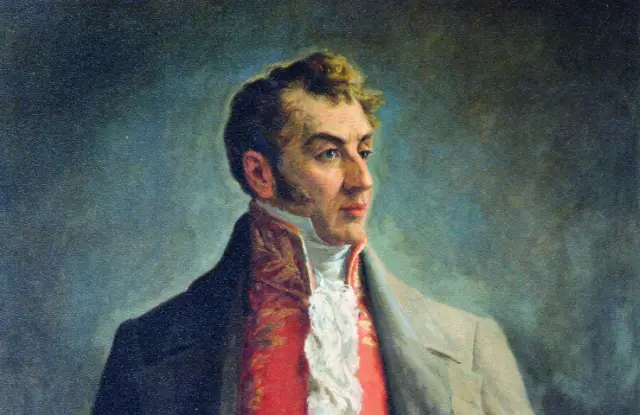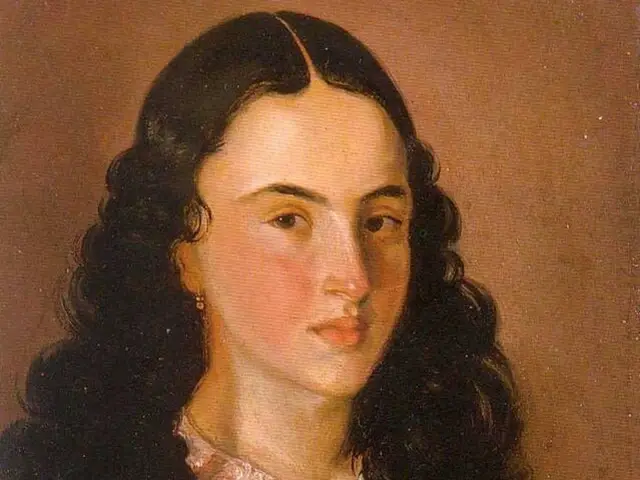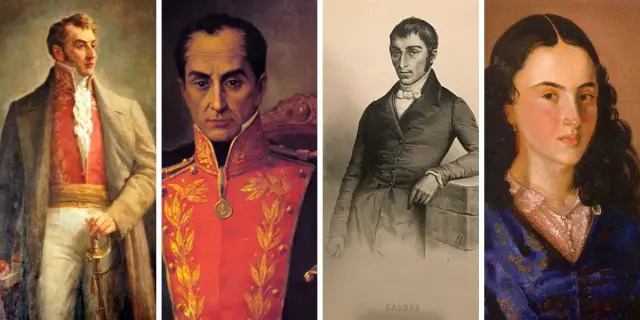The key figures in Colombia's independence were brave men and women who dedicated their lives to a greater cause: emancipation from Spanish colonial rule. This historical process, which lasted from 1810 to 1819, marked the emergence of a new nation that fought to establish a free, sovereign, and just state. Independence was not the work of a single person, but the result of multiple wills, revolutionary ideas, human sacrifices, and military exploits. Each figure contributed in their own role, whether as a strategist, politician, intellectual, or combatant, laying the foundations of what we know today as the Republic of Colombia. Below, you will learn about the most important figures, their contributions, and how their actions profoundly impacted the course of national history.
Main leaders of Colombia's independence
Simón Bolívar: the Liberator
Simón Bolívar is considered the greatest hero of the independence of not only Colombia, but also Venezuela, Ecuador, Peru, and Bolivia. His continental vision and tireless spirit made him an indispensable leader of the emancipation movement. Born in Caracas in 1783, Bolívar led decisive military campaigns such as the Liberation Campaign of 1819, which culminated in the famous Battle of Boyacá, a crucial event that sealed the defeat of Spanish rule in the Viceroyalty of New Granada.
Main contributions:
He led the patriotic army to victory in Boyacá, securing control of the Cundiboyacense plateau.
He promoted the creation of Gran Colombia as a regional integration project.
He was president of Colombia and defended the idea of a united Latin America in the face of new threats.

Francisco de Paula Santander: the organizer
Nicknamed "The Man of Laws," Francisco de Paula Santander was a key figure in the institutional consolidation of Colombia after its independence. Born in Cúcuta in 1792, he actively participated in the military campaigns in eastern Colombia and later dedicated his efforts to the organization of the new state. His legalistic and civic approach helped lay the foundations of the republican system.
Featured contributions:
Prominent military leader in the country's northern campaign.
Vice President during Bolívar's government and later acting president.
Tireless promoter of public education, law, and the administration of justice.
Antonio Nariño: the precursor
Antonio Nariño was one of the first to spread the ideals of the French Revolution in New Granada. Born in Santa Fe de Bogotá, he translated and published the Declaration of the Rights of Man and of the Citizen in 1793, an act considered subversive by the Crown. His intellectual courage and oratorical talent made him a crucial figure during the early stages of the independence movement.
Important achievements:
He promoted freedom of the press and thought, which were fundamental to the awakening of revolutionary sentiment.
Founder of the newspaper “La Bagatela”, from where he spread republican ideas.
Despite constant persecution and imprisonment, he never renounced his principles.

Other fundamental heroes
Policarpa Salavarrieta: the heroine of the resistance
Policarpa Salavarrieta, popularly known as La Pola , is one of the most remembered icons of the Creole resistance. She served as a spy, messenger, and direct collaborator of the patriotic army. Her role in gathering intelligence on the royalists was crucial. She was captured and executed in 1817, and her death became a symbol of female struggle and valor.
Key facts:
He was born in Guaduas, Cundinamarca, into a family of merchants.
She used her job as a seamstress to obtain valuable information about the royalist army.
Her figure represents the active participation of women in historical processes normally led by men.
Camilo Torres Tenorio: the revolutionary ideologist
Camilo Torres Tenorio was an important thinker and politician from Granada who left a profound mark with his visionary thinking. He was a member of the Congress of the United Provinces and stood out for his outspoken criticism of the colonial system and his advocacy of definitive, unconditional independence.
Relevant facts:
He wrote the Memorial of Grievances , where he demanded equality for Americans compared to the peninsulars.
He defended Creole interests from a legal and diplomatic perspective.
He was shot dead by order of the viceroy, becoming a martyr for the republican cause.
José Acevedo y Gómez: the people's speaker
José Acevedo y Gómez is remembered as the Tribune of the People for his energetic participation in the open town council of July 20, 1810. He was one of the main instigators of the uprising that marked the formal beginning of Colombia's independence process.
Key moments:
He called on the people to demand the creation of a Creole governing board.
His fiery speech ignited the revolutionary spirit of Bogotá.
He defended popular interests and the urgency of breaking ties with the Spanish monarchy.

Collective and regional contributions
Women in independence
Although less visible in official accounts, women played vital roles in the independence struggle. Many became spies, nurses, messengers, and strategic collaborators of the patriotic army.
Notable examples:
Manuela Beltrán: Peasant leader who instigated the comunero revolt.
Mercedes Abrego: Embroiderer of patriotic uniforms and executed for collaborating with Bolívar.
Manuela Sáenz: Political strategist and defender of Bolívar, known as “the Liberator of the Liberator.”
Indigenous and Afro-descendant support
The participation of Afro-Colombian and indigenous communities was crucial in many battles. These groups contributed knowledge of the terrain, physical strength, and unwavering loyalty to the patriotic cause.
Afro-descendants: They volunteered as combatants in exchange for their freedom, fighting in key battalions.
Indigenous people: Their logistical support and knowledge of mountain routes was vital to the army's movements.
Summary table of key characters
| Name | Main role | Historical contribution |
|---|---|---|
| Simon Bolivar | Military and politician | He led independence militarily |
| Francisco de P. Santander | Military and state organizer | Strengthened the institutions |
| Antonio Nariño | Intellectual and politician | He spread enlightened ideas |
| Policarpa Salavarrieta | Patriotic Spy | Icon of female resistance |
| Camilo Torres | Politician and thinker | Editor of the Memorial of Grievances |
| José Acevedo y Gómez | Civil leader | Promoter of independence in 1810 |
Influence of these characters today
Today, the legacy of these heroes lives on in multiple cultural, educational, and political expressions. Their names adorn plazas, schools, municipalities, streets, and statues, reminding the Colombian people of the struggle it took to build the nation. Furthermore, the ideals of liberty, justice, and equality they defended remain fundamental pillars of the Colombian democratic system.
Why is it important to know these characters?
Learning about the key figures of Colombia's independence is a way to pay tribute to those who gave their lives for freedom. It also strengthens our cultural identity and better understands the foundations of our democracy. Studying these heroes is an exercise in historical memory, but also a way to reflect on the challenges of the nation's present and future.
